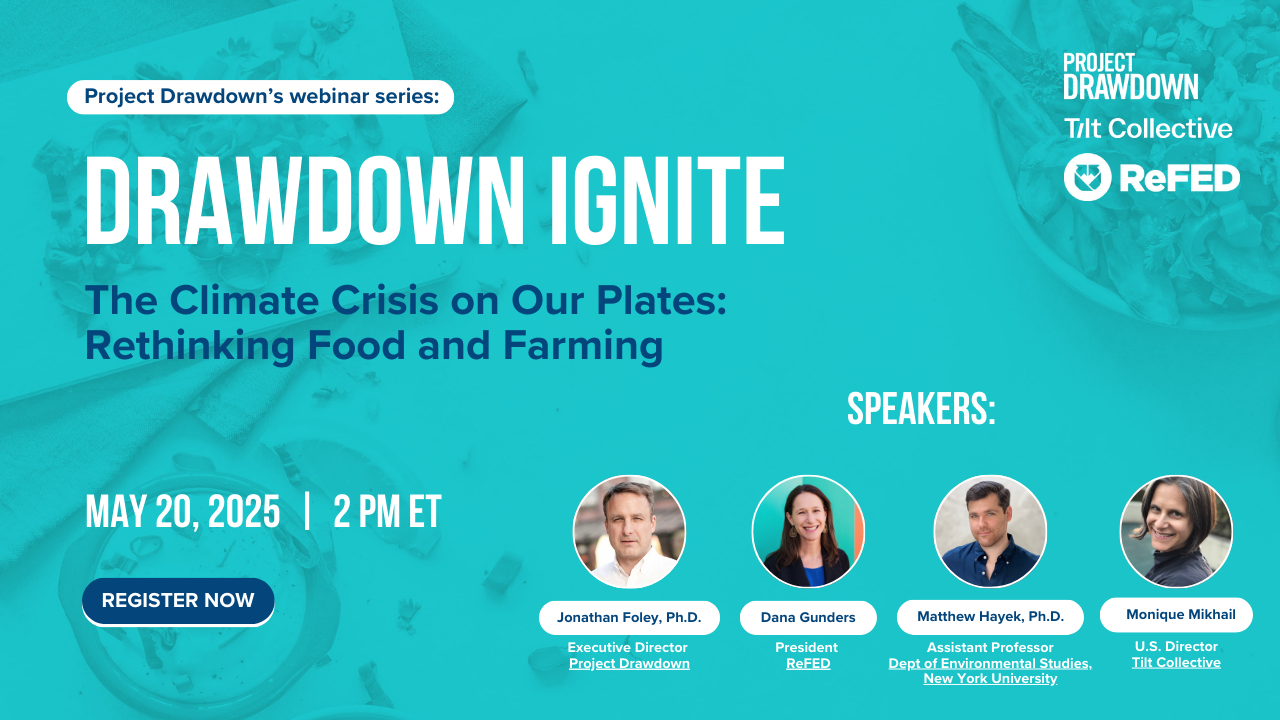When we think of climate change, we often think of fossil fuels, electricity, transportation, buildings, and industry. But that’s not the whole story.
Some 20–35% of human-generated greenhouse gases come from food, agriculture, and land use. And those emissions are growing — even in countries that are making progress on fossil- and energy-related emissions. If this trend continues, food, agriculture, and land use could become one of the thorniest and most stubborn sources of greenhouse gases.
The good news? Solutions to address this challenge exist! During our next Drawdown Ignite webinar, executive director Jonathan Foley, Ph.D., will engage outside experts in a far-ranging discussion focused on food, agriculture, and land use.
Featured guests:
Dana Gunders, President, ReFED
Dana Gunders is President of ReFED, a nonprofit focused on advancing data-driven solutions to U.S. food waste. Dana has dedicated her career to helping industry, policymakers, and consumers activate solutions to reduce food waste, including reports, books, testifying in Congress, and hundreds of media appearances.
Matthew Hayek, Ph.D., Assistant Professor, Department of Environmental Studies, New York University
Matthew Hayek is an environmental scientist and Assistant Professor in the New York University Department of Environmental Studies. His research quantifies the environmental impacts of our food system, with a specific focus on greenhouse gas emissions such as methane and land use changes, including deforestation.
Monique Mikhail, U.S. Director, Tilt Collective
Monique Mikhail is the U.S. Director at Tilt Collective with over two decades of experience in food systems change. Tilt Collective is a philanthropy addressing the interconnected climate, health, and biodiversity challenges caused by intensive animal agriculture. Tilt supports organizations working across health, climate, and farmer livelihoods in transforming the global food system with a focus on plant-rich diets.



